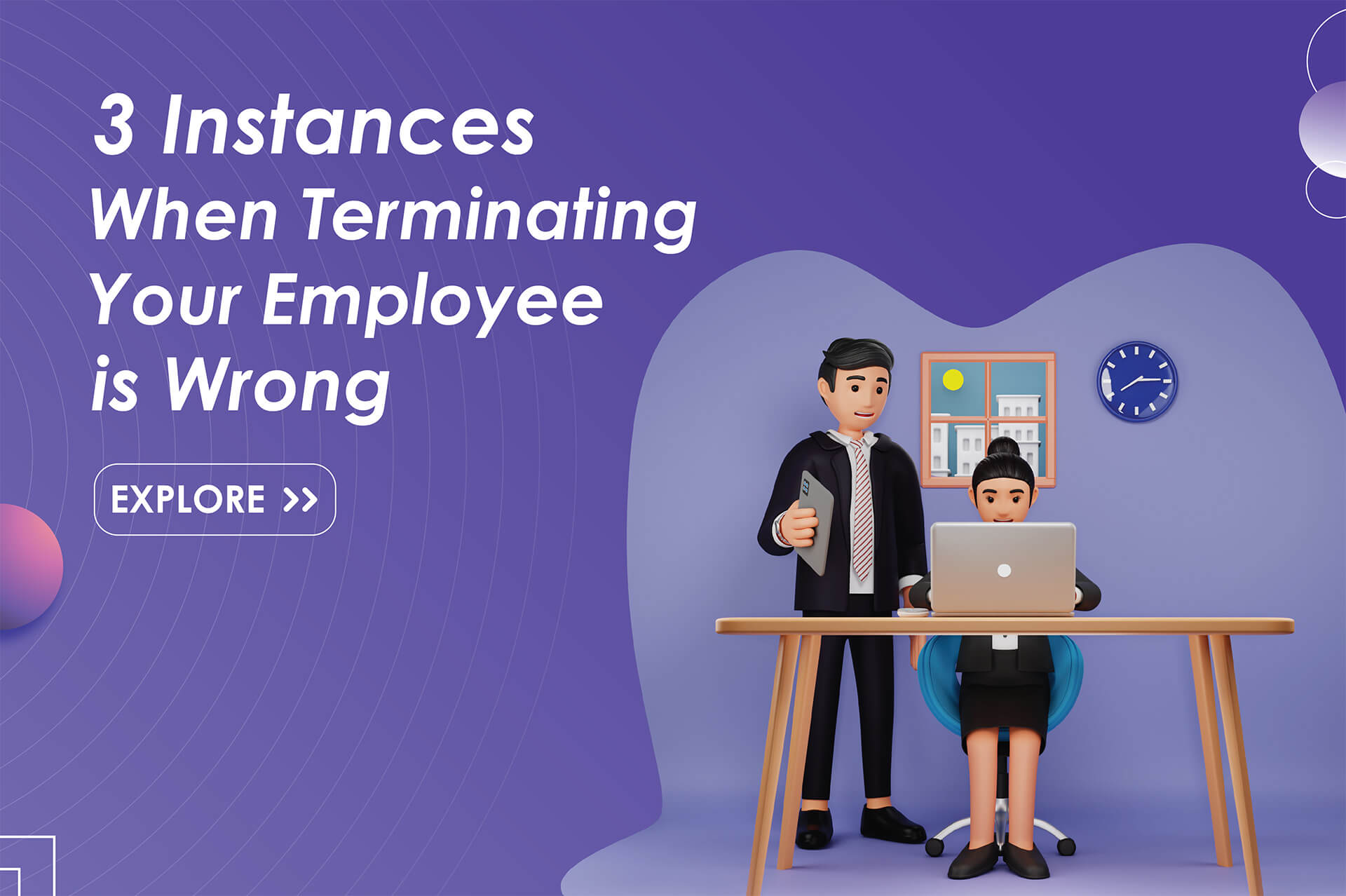The relationship between the employee and the employer is of mutual benefit. One receives the paycheque and, in return, provides services that help the employer sustain and grow the business.
However, there are times when things may go wrong. An employer may have to make hard decisions- like terminating an employee.
An employee can be terminated for many reasons, such as intellectual property theft, violating rules and regulations of the organization, breaching privacy policy, using the company’s resources wrongfully, not being productive at work, and so on.
However, there are instances when the employee is wrongfully terminated due to the employer’s bias or miscalculated character flaw. In such a scenario, the employee may approach the court of law. Furthermore, it may harm the employer’s reputation in the market.
Therefore, before terminating an employee, it is wise to introspect and ask- why am I taking this extreme step? Stop and rethink your decision if the answer is any of the following.
DISCRIMINATION:
Discrimination can be of many types, such as age, religion, gender, physical disability, and nationality, to count a few. Amongst these, age and gender discriminations are widespread. If you treat young and old employees differently for the same mistake, it’s time to introspect. Similarly, if you terminate a female employee assuming that she might get married and leave the city, get pregnant and ask for maternity leave, then it is unethical and it falls in the category of gender discrimination.
Making hiring, firing and promotion decisions based on bias, prejudice, and discrimination is a strict no-no for a good company.
RETALIATION:
There are instances when the employee might complain about the organization’s environment. It can be related to sexual harassment or illicit activities within the organization. It is wrong to terminate an employee for whistleblowing. This will dissuade others from bringing up issues that affect the organization’s growth and environment. Moreover, it will encourage wrong-doers, pushing your organization further on the wrong path.
FOR TAKING LEAVES:
Employees are chiefly concerned about two things: salary and leaves. While receiving adequate compensation and timely hikes boost their morale, leaves help them attain work-life balance. However, some types of leaves facilitate employees to stay away from work for a longer duration. This includes maternity leaves or special medical leaves. The employer must understand that these leaves are vital for the employees and it is their right. Therefore, the decision to terminate an employee before long-duration leave should be questioned with a clear conscience.
Managing a growing business and human resources together can be daunting for small businesses. Therefore, it is wise to outsource HR functions to virtual HR service provider companies like Huminivex Consulting and Training. They help small businesses, corporates and industries set up policies & procedures, address current problems and transform the workforce. In addition, they also help and guide companies throughout the employee lifecycle so that companies can make the right decisions for their business growth.
